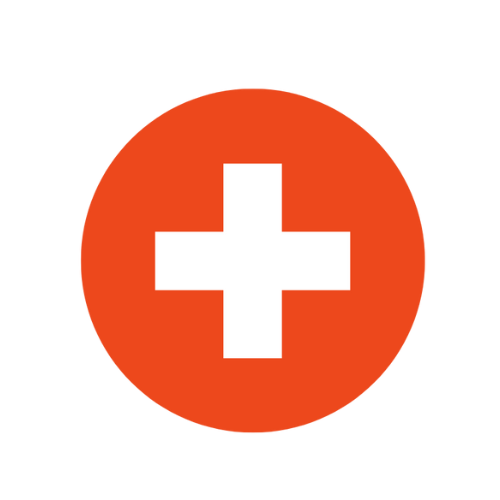
Earthquakes can strike without warning, causing significant damage and posing serious risks to safety.
Being prepared with the right knowledge and supplies can make a crucial difference.
Let’s Start Here – What Not to Do in an Earthquake
During an earthquake, it’s crucial to know not only what actions to take but also what to avoid to ensure your sa
fety and that of those around you. Here are key things you should NOT do during an earthquake:
1. Don’t Panic- Panicking can lead to poor decision-making and increased risk of injury. Stay as calm as possible to think clearly and act safely.
2. Don’t Run Outside
– Running outside during an earthquake can be extremely dangerous due to falling debris, glass, and other hazards. It’s usually safer to stay indoors.
3. Don’t Stand in Doorways

4. Don’t Light Matches or Candles
– If there’s a gas leak, lighting a match or candle could cause an explosion. Use flashlights or battery-powered lanterns instead.
5. Contrary to popular belief, doorways are not the safest place to be during an earthquake. Modern buildings have stronger walls and doorframes, so it’s better to drop, cover, and hold on under sturdy furniture.
6. Don’t Use Elevators
– Elevators can become stuck or malfunction during an earthquake. Use stairs if you need to evacuate a building after the shaking stops.
7. Don’t Ignore Safety Protocols
– Follow established earthquake safety protocols and the advice of local authorities. Ignoring these can put you and others at greater risk.
8. Don’t Stand Near Windows or Glass
– Windows and glass can shatter during an earthquake, causing serious injuries. Move away from these areas and take cover under sturdy furniture.
9. Don’t Stay Under Heavy Objects
– Avoid areas where heavy objects like ceiling fixtures, bookshelves, or other furniture could fall. Move to a safer location if possible.
10. Don’t Neglect Aftershocks
– Aftershocks can be as dangerous as the initial earthquake. Stay alert and be prepared to take cover again if necessary.
11. Don’t Forget to Check for Hazards Post-Earthquake
– After the shaking stops, check for potential hazards like gas leaks, electrical damage, or structural issues. Do not re-enter a damaged building until it has been inspected and deemed safe.
Additional Tips
– Stay Informed: Listen to emergency broadcasts and follow instructions from authorities.
– Have a Plan: Ensure all family members know your earthquake safety plan and where to meet if separated.
– Prepare Your Space: Secure heavy furniture, appliances, and other items that could fall during an earthquake.
By knowing what not to do during an earthquake, you can reduce the risk of injury and increase your chan
ces of staying safe. Stay calm, stay informed, and always be prepared.
 What to Do During an Earthquake
What to Do During an Earthquake1. Stay Calm: Keep your composure and focus on safety.
2. Drop, Cover, and Hold On:
– Drop to your hands and knees to prevent being knocked over.
– Cover your head and neck under a sturdy piece of furniture.
– Hold On to your shelter until the shaking stops.
3. Stay Indoors: If you’re inside, remain there. Avoid doorways and stay away from windows, mirrors, and anything that could fall.
4. Find an Open Space: If you’re outside, move to an open area away from buildings, trees, streetlights, and utility wires.
5. Stay Put: If you’re in a vehicle, pull over to a clear area and stay inside. Avoid stopping under overpasses or near buildings.
Post-Earthquake Safety
1. Check for Injuries: Administer first aid to anyone injured and seek medical help if necessary.
2. Inspect for Damage: Check your home for structural damage and hazards such as gas leaks, electrical issues, and water line damage.
3. Stay Informed: Listen to emergency broadcasts and follow instructions from local authorities.
4. Avoid Hazards: Stay away from damaged areas and be cautious of aftershocks.
1. Water Supply
– At least one gallon of water per person per day for at least three days.
– Water purification tablets or a portable water filter.
2. Non-Perishable Food
– A three-day supply of ready-to-eat, non-perishable food items such as canned goods, energy bars, and dried fruits.
– Manual can opener.
3. First Aid Kit
– Bandages, antiseptics, pain relievers, and prescription medications.
– Basic first aid manual.
4. Shelter and Warmth
– Emergency blankets and sleeping bags.
– Sturdy shoes and warm clothing.
5. Tools and Supplies
– Solar Powered Phone Charger
– Flashlights with extra batteries. (In your first aid kit)
– Multi-tool or basic tool kit. (In your first aid kit)
– Duct tape and plastic sheeting for temporary repairs.
6. Hygiene and Sanitation
– Hand sanitizer, moist towelettes, and personal hygiene items.
– Garbage bags and plastic ties.
7. Communication and Navigation
– Battery-powered or hand-crank radio to stay updated with emergency broadcasts.
– Extra cell phone chargers and power banks.
8. Important Documents
– Copies of personal identification, insurance policies, and medical records.
– Emergency contact information.
9. Cash and Emergency Funds
– Small bills and coins for emergency purchases.
– Secure storage for credit cards and additional cash.
10. Comfort Items
– Books, games, or other forms of entertainment.
– Special items for children, elderly family members, or pets.
Preparation is key to ensuring your safety during and after an earthquake. By knowing what to do and having essential supplies on hand, you can significantly reduce the risks and impacts of an earthquake. Start building your earthquake preparedness kit today and stay safe!
For a more detailed list of essentials and additional tips, download our FREE Basic Preparedness Essentials Checklist.
Stay informed, stay prepared, and keep your loved ones safe!